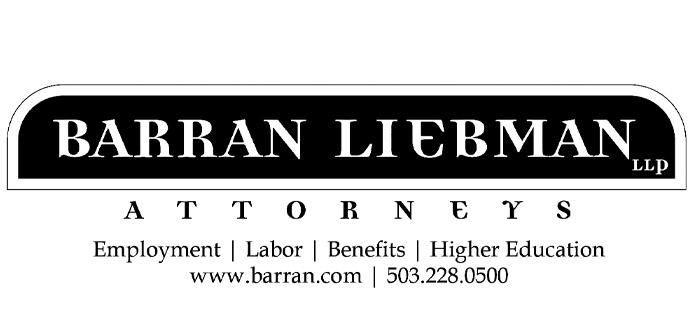DEI Programs in the Aftermath of SFFA
It isn’t exactly groundbreaking news that in the last few years, the prevalence of diversity initiatives in American workforces has exploded. Following civil unrest across the country in response to the death of George Floyd in 2020, we saw corporate America quickly adopting commitments to advancing diversity, equity, and inclusion (DEI) in their workforces and workplaces. Although opinions about DEI programs have continued to shift and both sides of the political aisle have expressed some skepticism of these initiatives, they remain critical to a large portion of the workforce – a CNBC poll found that 80% of respondents reported wanting to work for a company that values diversity, equity, and inclusion. Additionally, the pollster group Gallup found that over 40% of U.S. applicants consider whether a company is diverse and inclusive when considering a job offer and the Pew Research Center found that 56% of workers said that focusing on DEI efforts at work is a good thing.
This is not to say that employers who previously adopted DEI policies can merely sit back and rest on their laurels. Public opinion on certain kinds of policies is shifting, and simple statements of commitment to DEI ideals without effective effort to work towards those ideals is likely to be viewed negatively by both sides of the political aisle. Furthermore, the future legality of DEI programs and initiatives was thrown into question following last year’s landmark decision from the United States Supreme Court in Students for Fair Admissions, Inc. (SFFA) v. President and Fellows of Harvard College, which effectively ended Affirmative Action as we know it in the higher education context.
Affirmative Action & DEI
Affirmative Action is a form of DEI program in which race is explicitly considered through policies and practices within an organization aimed at improving opportunities for underrepresented populations. The SFFA decision made it unlawful for public and private university admissions to have race-based Affirmative Action programs, with the Court finding this violated the constitution and refuting the universities’ defense that its explicit use of race in admissions was necessary to ensure diversity and create equal opportunities for unrepresented groups.
Despite much speculation to the contrary, it is not to be mistaken that the SFFA decision directly addressed or changed any workplace anti-discrimination laws. Following the decision, the United States Equal Employment Opportunity Commission (EEOC) Chair Charlotte A. Burrows released a statement reminding employers that implementing DEI policies and programs in the workplace remains acceptable as the law currently stands. However, this may change, and although employers may continue to lawfully implement policies to diversify their employees and create equal opportunity in the workplace, they must be cautious of the implications the SFFA decision imposes on these policies and programs.
From College Admissions to Employers
In addition to colleges and universities, some employers utilize similar Affirmative Action policies in their hiring processes to ensure diversity and create equal opportunities for all applicants. Since the SFFA decision, constitutional challenges of Affirmative Action policies and programs in the workplace have been filed throughout the country. Human resource departments and company hiring programs involving specific funding and positions dedicated for underrepresented minority individuals, DEI policies that include quota goals to diversify their employees, and anti-discrimination initiatives through DEI programs have all been subject to litigation. These examples only offer a glimpse of the current litigation regarding DEI strategies, anti-discrimination policies, and Affirmative Action practices after the SFFA decision. Programs or initiatives that are explicitly race-conscious are most likely to be challenged and are easiest to apply the U.S. Supreme Court’s reasoning in SFFA to.
Employer Takeaways
Even though the SFFA decision does not make Affirmative Action in employment policies unconstitutional, it clearly changes how employers must approach their DEI policies and programs. Through a careful assessment of current employment DEI policies and programs, the risk of a constitutional challenge in a potential litigation may decrease considerably and employers may find that they can identify more effective policies with less risk of drawing future challenges. Debiasing techniques, which involve creative methods to reduce often-subconscious bias in the workplace, can provide beneficial solutions for employers seeking a safer approach to their DEI efforts, often without any explicit racial consideration. A few examples of debiasing practices involve: (1) following a consistent interview structure with uniform questions for all applicants; (2) removing demographic information in resume evaluations; and/or (3) amending employee orientations to include implicit bias training. Indeed, stemming from a now infamous study involving orchestras attempting to increase diversity, many studies have found that implementing blind interviews can result in a drastic increase in diversity. Additionally, educating hiring committees, recruitment teams, and human resource departments of the potential danger of litigation developing from the SFFA decision is crucial.
Given the potential shift following the Court’s decision in SFFA, now is an excellent time for employers to reevaluate their policies, both to minimize legal risk of challenge in the future as well as to ensure that they are actually effective in working towards their DEI goals in a meaningful way. As the conversation concerning DEI and race-based considerations continues in employment law, employers must proceed with caution and acknowledge the heightened risk of litigation when shaping DEI policies and programs.
For more information about best practices for DEI policies and programs in light of the landmark decision in SFFA v. Harvard, register for Barran Liebman’s 2024 Annual Employment, Labor, Benefits & Higher Education Law Seminar at barran.com.
Wilson Jarrell is a partner at Barran Liebman LLP, where he represents employers on a wide range of employment issues. For questions, contact him at 503-276-2181 or wjarrell@barran.com.
Iesha Comia is a law clerk with Barran Liebman LLP. She partners with attorneys in client trainings, legal research, and drafts of employment policies and handbooks.





